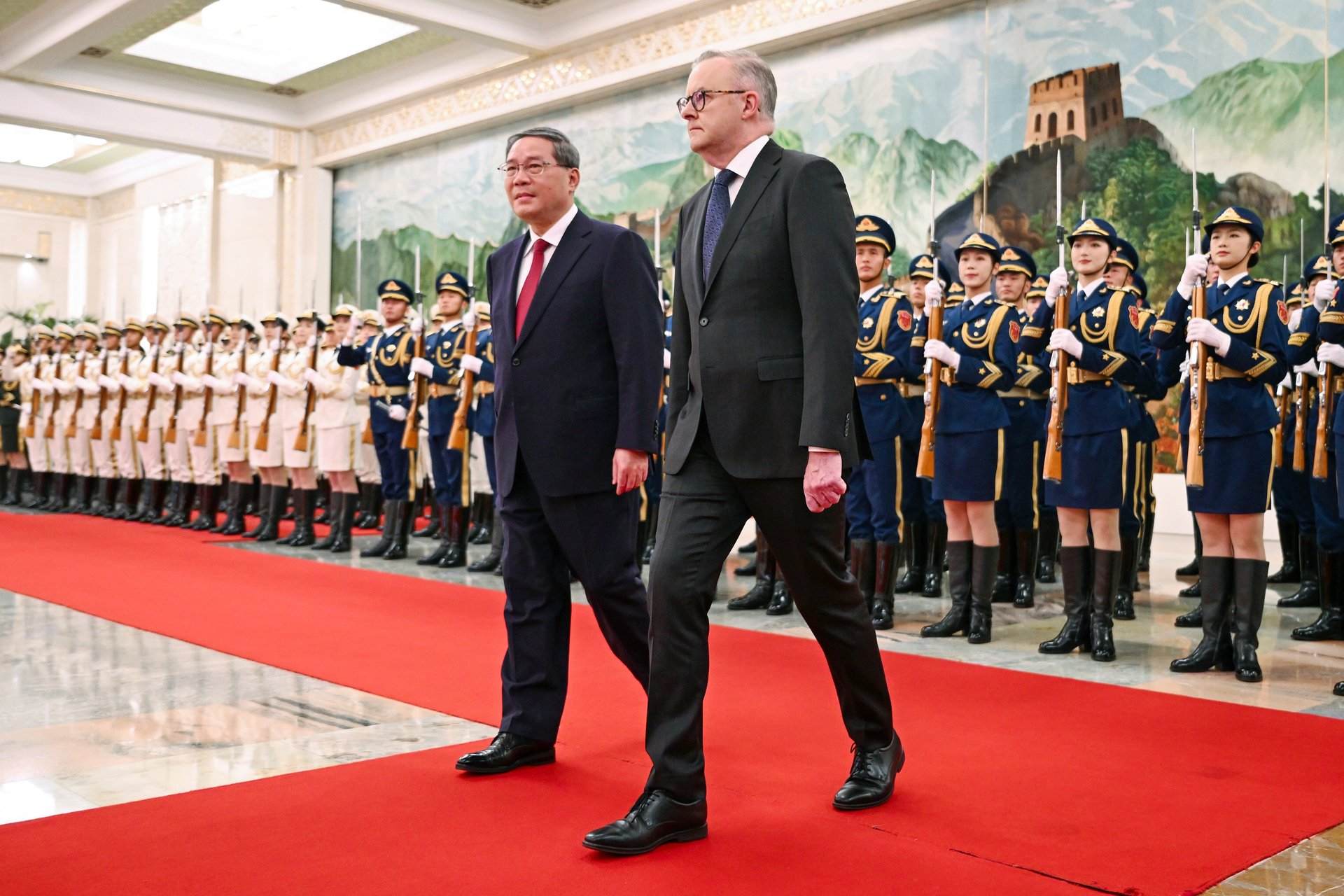Australia's leader calls for free and unimpeded trade to resume with China after ties deteriorated
Australian Prime Minister Anthony Albanese has called for the “full resumption of free and unimpeded trade" with China in a meeting with Chinese Premier Li Qiang

BEIJING (AP) — Australian Prime Minister Anthony Albanese called for the “full resumption of free and unimpeded trade” with China in a meeting Tuesday with counterpart Li Qiang that marked the return of talks after a four-year hiatus.
Suggested Reading
A joint statement said the countries agreed to resume an annual leaders meeting, which had been halted by a sharp deterioration in relations during which China slapped tariffs and other restrictions on imports from Australia.
Ties have improved in the past year, and China has lifted some trade restrictions, which are estimated to have cost Australian exporters up to 20 billion Australian dollars ($13 billion) a year. China has been a major market for Australia in a range of goods including coal, wine, beef, barley and lobsters.
"We can grow the relationship while advancing our respective interests, if we wisely navigate when there are differences,” said Albanese, the first Australian leader to visit China in seven years.
Li said China is willing to work with Australia to further strengthen dialogue and properly handle differences so that cooperation will be the main feature of their relations, China's official Xinhua News Agency said.
Relations spiraled downward in recent years as the Australian government began to view China as a potential security threat.
Australia's parliament banned covert foreign interference in domestic politics, a move sparked by suspicion of Chinese interference. Soon after, the government banned Chinese-owned telecommunications giant Huawei from rolling out its 5G network in Australia due to unspecified security concerns.
China was angered by Australia’s call for an inquiry into the origins of the COVID-19 virus and the country's deepening security ties with the United States, notably the AUKUS agreement that also includes Britain and will provide Australia with submarines powered by U.S. nuclear technology.
Albanese, who has acknowledged differences with China throughout his trip, named climate change, food security and transnational crime as areas in which the two nations can cooperate.
Li said China is ready to strengthen cooperation in energy and mining and in new areas such as green development, the digital economy, scientific and technological innovation and the health industry, Xinhua reported.
He called for avoiding the politicization of economic and trade issues and “overstretching the concept of security” to those areas, Xinhua said.
Ahead of Albanese's visit, Australian journalist Cheng Lei was released in October after three years in detention in China under charges of espionage, a case that became a focal point in the tensions.
Albanese finished his China visit on Tuesday and headed to the Cook Islands, where he will join a leaders meeting of the Pacific Islands Forum to discuss climate change and other issues.